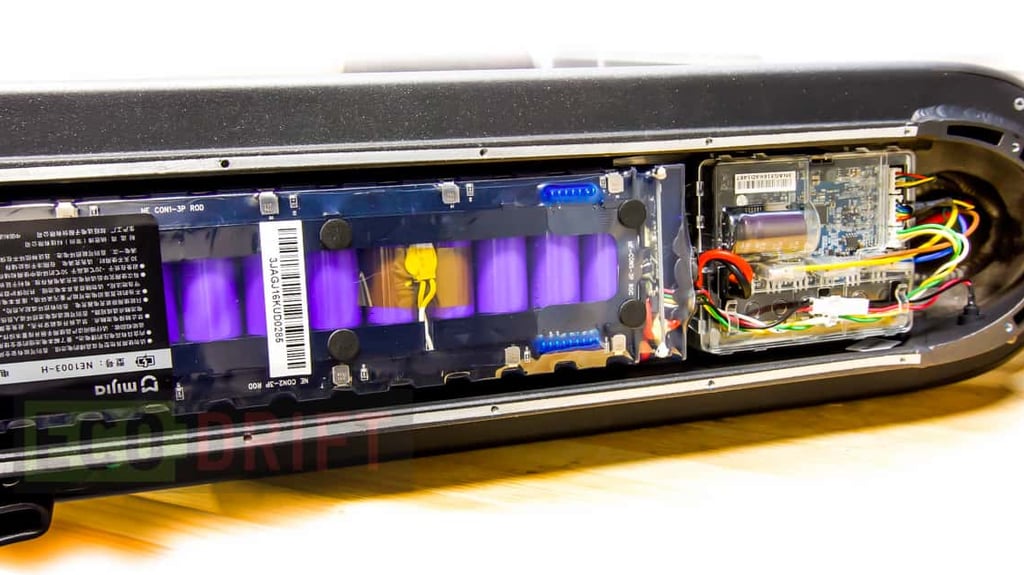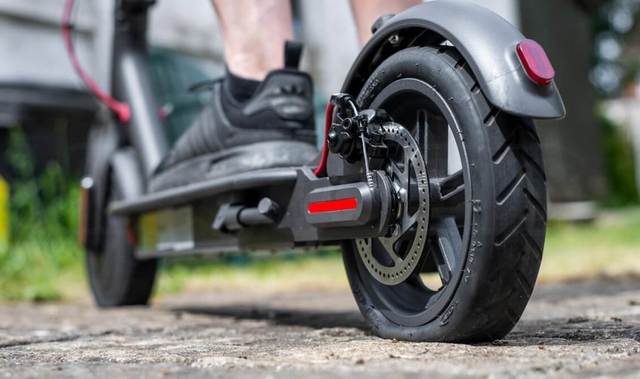
How long does the scooter battery last?
In this article we tell you what the average life of batteries usually is and tips to preserve it.
8/2/20242 min read
The battery life of an electric scooter is one of the main concerns for users, as it determines both the distance they can travel and how often they need to charge the device. The battery lifespan can vary significantly depending on several factors, including the type of battery, handling, and environmental conditions. On average, a well-maintained electric scooter can provide between 20 and 40 kilometers per charge, but this figure may decrease with use and over time. It is crucial to understand how long an electric scooter lasts in terms of battery capacity to maximize its utility and properly manage expectations regarding its performance.


Several factors influence how many hours an electric scooter’s battery lasts. These include the type of terrain on which it is driven, weather conditions, the rider's weight, and the overall quality of the scooter. For example, driving on constant inclines or rough terrain consumes more energy than moving on flat, smooth surfaces. Additionally, extremely high or low temperatures can negatively affect battery efficiency and reduce its long-term lifespan.
The average lifespan of a battery for electric scooters is typically between 500 and 1000 full charge cycles, which, translated into years, could range between two to four years depending on usage. However, this range can be extended or reduced depending on how the device is cared for and handled. A full charge is defined as charging the battery from a completely discharged state to its maximum capacity.
To prolong the life of an electric scooter in terms of available energy per charge, it is advisable to follow some key practices:
• Avoid completely discharging the battery before recharging it.
• Do not expose the scooter to extreme temperatures.
• Always use the original charger and follow the manufacturer’s instructions.
• Store it in a cool, dry place when not in use. These practices not only help maintain the scooter’s optimal performance but also significantly extend its overall lifespan.
The materials used in the construction of the chassis, such as aluminum or reinforced steel, largely determine its resistance to daily wear and tear as well as occasional impacts. Brakes should be checked regularly to ensure proper functioning, while tires must be inflated to the correct pressure marked by the manufacturer and need to be replaced after a certain number of kilometers, depending on the specific model and type of use.
Factors affecting battery durability
Lifetime
Advice
Mechanics


Key components and their durability
Regularly maintaining an electric scooter not only ensures a better user experience but also significantly extends its overall lifespan. This includes everything from periodic adjustments to deep cleanings and specialized technical inspections when necessary.
Conclusion
Mechanics also play an important role in the longevity and duration of the battery, as from an energy perspective, components like the chassis, brakes, and tires play crucial roles.
contact@lezoconcept.com
© 2024.lezoconcept all rights reserved. License N0459290 Spain